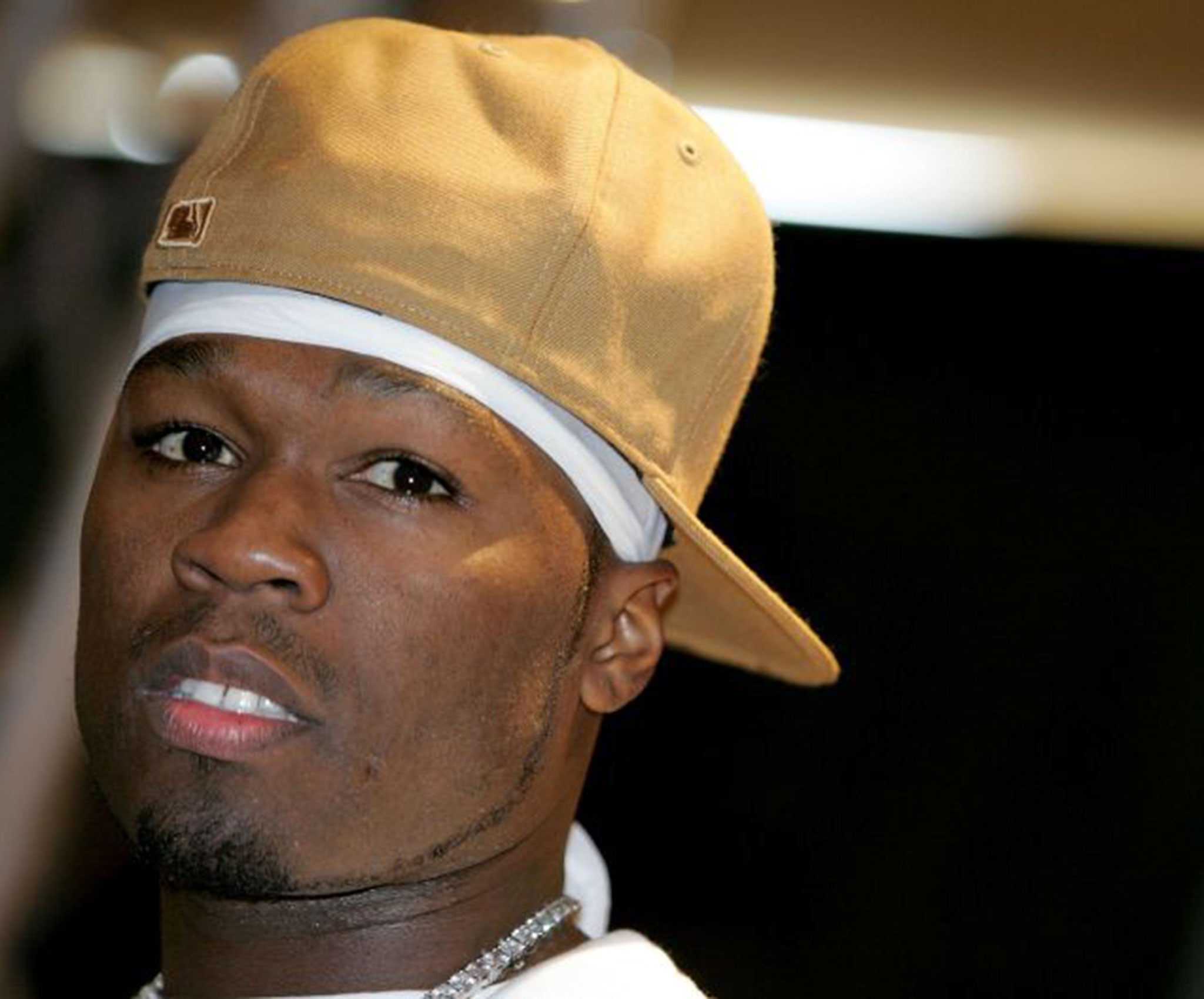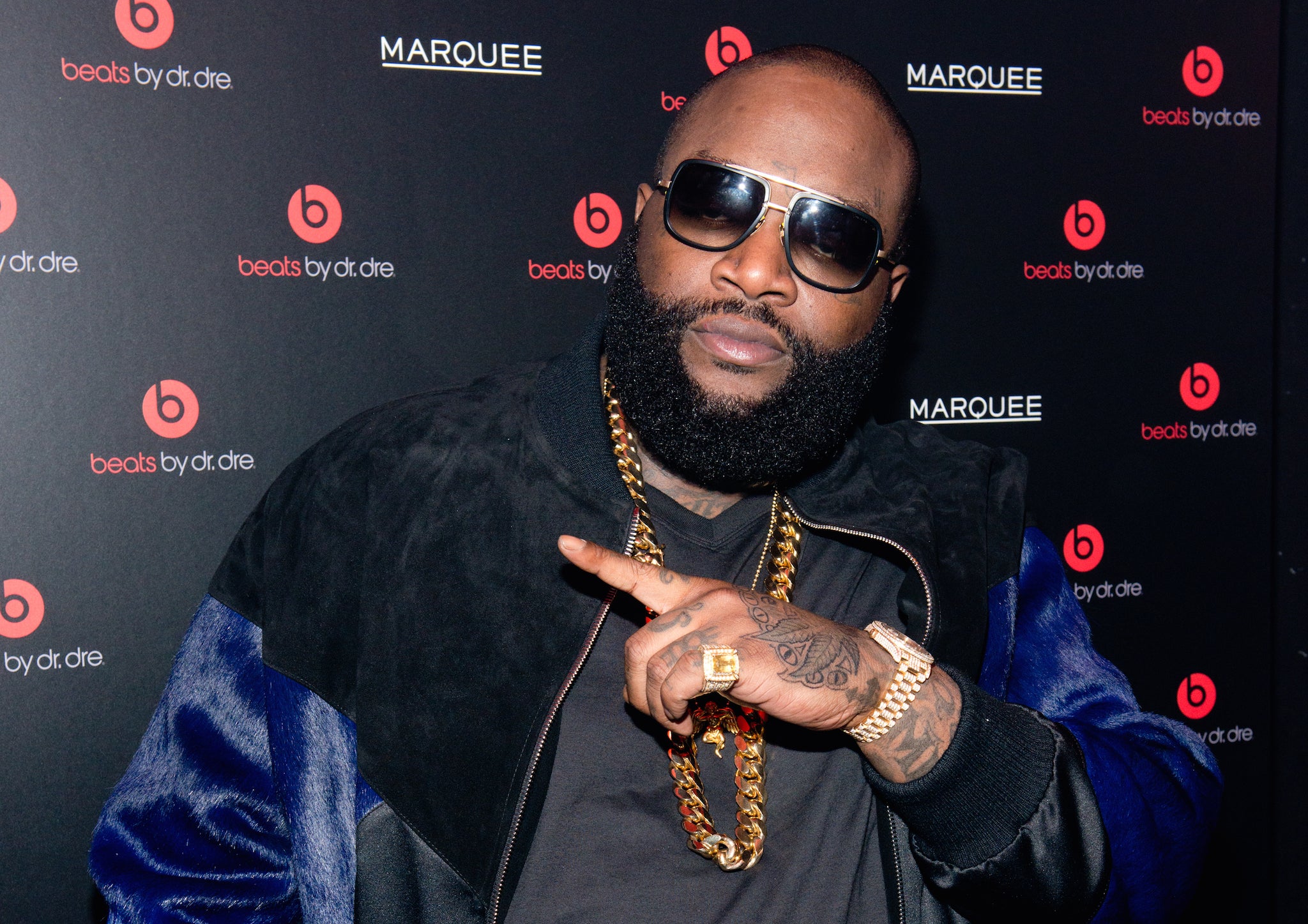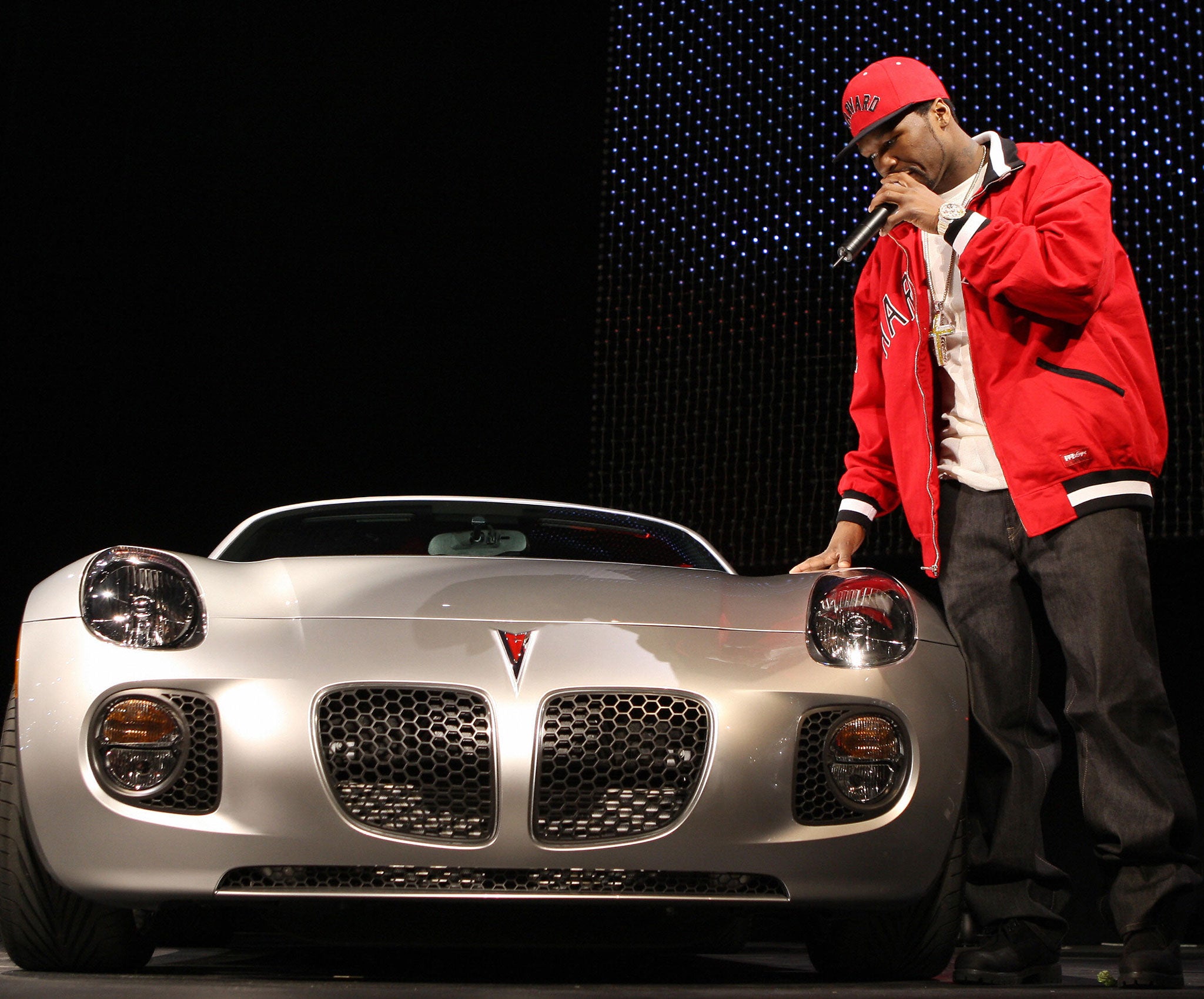50 Cent bankruptcy: He's gone from super rich to broke – but will rapper have the last laugh?
When you’ve been shot nine times, a lawsuit probably isn't too scary

Your support helps us to tell the story
From reproductive rights to climate change to Big Tech, The Independent is on the ground when the story is developing. Whether it's investigating the financials of Elon Musk's pro-Trump PAC or producing our latest documentary, 'The A Word', which shines a light on the American women fighting for reproductive rights, we know how important it is to parse out the facts from the messaging.
At such a critical moment in US history, we need reporters on the ground. Your donation allows us to keep sending journalists to speak to both sides of the story.
The Independent is trusted by Americans across the entire political spectrum. And unlike many other quality news outlets, we choose not to lock Americans out of our reporting and analysis with paywalls. We believe quality journalism should be available to everyone, paid for by those who can afford it.
Your support makes all the difference.The first man to call himself 50 Cent was Kelvin Martin, a petty criminal from Brooklyn, who was shot dead in 1987 and is said to have earned the nickname for his willingness to rob people regardless of how little money they had in their pockets. Curtis Jackson, the hip-hop star who would later take Martin’s moniker as his stage name, has said he did so because “I’m the same kind of person 50 Cent was. I provide for myself by any means.”
This week, the name he borrowed has become a punchline for any number of jokes about the 40-year-old rapper and businessman, who filed for Chapter 11 bankruptcy protection in a court in Connecticut on Monday. The news appeared to be evidence that Jackson’s fortune had waned along with his cultural relevance. But, if his subsequent statements are anything to go by, then a much-mocked reference in a recent New York Times profile to Jackson’s “exceptional business instincts” may not have been too wide of the mark, after all.
The filing came three days after Jackson lost a lawsuit brought by a woman whose sex tape he posted on his website without her permission. In 2009, in the midst of a public beef with rival rapper Rick Ross, Jackson acquired a video of Lastonia Leviston, the mother of Ross’s daughter, having sex with her former boyfriend. Jackson bought the video from said boyfriend, superimposed his own face onto the man’s body, and then posted it online.

After a New York court ruled in her favour last week, Jackson was ordered to pay Ms Leviston $5m (£3.2m) and to furnish the jury with his financial details, so they could decide on an additional amount of punitive damages. Instead, he filed for bankruptcy, a move Ms Leviston’s lawyer claimed was no more than a delaying tactic.
This week, on the publicity trail for his latest acting role, in the boxing drama Southpaw, Jackson appeared to acknowledge as much, insisting he is not broke, but simply – as his own lawyer put it in a statement – “reorganising his financial affairs”.
“Walt Disney has filed bankruptcy. Donald Trump has filed bankruptcy. It means you’re reorganising your finances, but it does stop things from moving forward that you don’t want moving forward,” Jackson told E! News on Monday. A day later, he posted an image of himself on Instagram, posing next to a tiny Smart car with the caption: “Times are hard out here LMAO”. His car collection in fact includes a Lamborghini, a Ferrari and a Rolls-Royce.
On Wednesday, Jackson appeared on Conan O’Brien’s late night talk-show. “I need protection,” he told the host. “You get a bullseye painted on your back when you’re successful, and it’s public. You become the ideal person for lawsuits.”
When you’ve been shot nine times, being the target of a lawsuit probably doesn’t seem particularly scary. It is part of 50 Cent’s legend that in April 2000, on the cusp of musical stardom, he was struck by nine bullets in the hand, arm, hip, legs, chest and cheek in a shooting outside his grandmother’s home in Jamaica, Queens.
Born in 1975, Jackson was raised by his grandmother from the age of eight, when his mother, a cocaine dealer, was murdered. In his early teens, he too began dealing drugs, and at 19 spent seven months at a prison “boot camp” in upstate New York. But after meeting his mentor, hip-hop veteran Jam Master Jay of Run DMC, in the mid-1990s, he began to pursue music.

One of his early, unreleased tracks, “Ghetto Qur’an”, listed some of the drug dealers who had frequented his neighbourhood during his youth. After the song emerged in 2000, one of those dealers, a Kenneth McGriff, imposed a music industry blacklisting of the young rapper. McGriff was later accused of involvement in the 2002 murder of Jam Master Jay, whom many believe was killed for working with Jackson. McGriff is now serving a life sentence for another murder.
Jackson, meanwhile, escaped the cycle of violence after fellow rapper Eminem heard one of his mixtapes in 2002, and introduced him to Dr Dre, who would produce parts of his 2003 debut LP Get Rich or Die Tryin’, including the No 1 single “In Da Club”. That album and its follow-up, The Massacre, went on to sell more than 20 million copies combined.
His music made him a star, but those vaunted business instincts made him a mogul. In 2007 Jackson made approximately $100m (£64m) when Coca-Cola bought Vitamin Water, the drinks brand in which he had a minority stake, for $4.1bn.
He later bragged about the deal in his single “I Get Money”, rapping: “I took quarter water sold it in bottles for two bucks / Coca-Cola came and bought it for billions, that’s what’s up.”
Last year, Jackson’s net worth was estimated at $155m. He is the chief executive of G-Unit Records, founder of the headphones company SMS Audio and part-owner of the vodka brand Effen. In 2014 he boasted of having made $78m by putting his name to a line of men’s underwear, and of taking a $23m payout from Interscope records as he left the label.
Yet on 26 May, as jury selection was due to begin in Ms Leviston’s case, Jackson’s boxing firm SMS Promotions filed for bankruptcy in a federal court. His lawyers asked that the case be moved from state to federal jurisdiction, where they argued he was protected from the lawsuit by bankruptcy law – but to no avail. In this week’s personal bankruptcy filing, Jackson reported assets and debts both of between $10m and $50m.
Have his business instincts really deserted him, or is this just another smart move?
Join our commenting forum
Join thought-provoking conversations, follow other Independent readers and see their replies
Comments